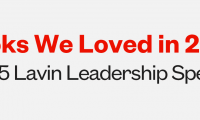Collaboration is touted as a core value in many organizations. But oftentimes, strategies to increase the practice in the workplace come up short. Why? Behavioral scientist Francesca Gino explains in a new paper for HBR.
“One problem is that leaders think about collaboration too narrowly: as a value to cultivate but not a skill to teach,” Francesca Gino writes. From open-plan offices to naming collaboration an official corporate goal, these strategies create opportunities for collaboration, but frequently fail to deliver. What’s worse, these methods can seem heavy-handed or superficial.
Gino explains that what’s really needed is a psychological approach. “When I analyzed sustained collaborations in a wide range of industries, I found that they were marked by common mental attitudes: widespread respect for colleagues’ contributions, openness to experimenting with others’ ideas, and sensitivity to how one’s actions may affect both colleagues’ work and the mission’s outcome.”
In her Harvard Business Review article, Gino explores the organizations who have cracked the code—and distills the winning formula. Read the full paper here.
To book speaker Francesca Gino for your next speaking event, contact The Lavin Agency today and speak with a knowledgeable representative.















